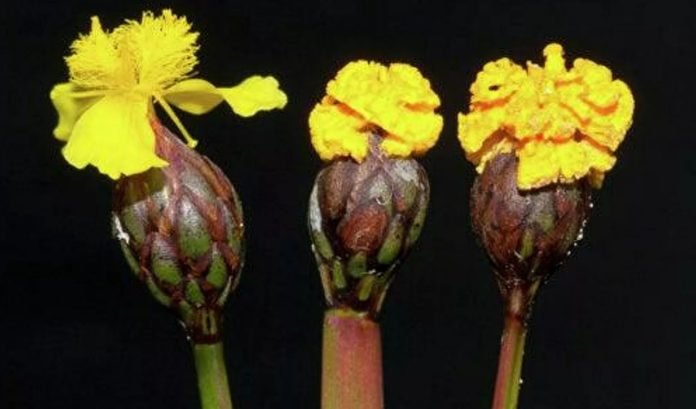Nature works in amazing ways. A sample of this is yellow fungi that pretend to be flowers to reproduce. Yes, these intelligent fungi imitate the shape and color of the petals and give off a smell similar to that of flowers to attract insects that, instead of feeding, end up carrying spores.
If an unsuspecting eye sees them, they may not realize that what is in front of them is a mushroom and not a flower. The Fusarium xyrophilum has evolved so much that manages to fool the bees and other pollinators, according to the journal Scientific American. It is the first known pseudo-flower, that is, a fungus that mimics a flower.
- Scientists in Fear of This New Predator From Red Sea Eating Native Species in Mediterranean
- Does This Mean We Stopped Being Animal and Started Being Human Due to ‘Copy Paste’ Errors?
- The One Lifestyle Choice That Could Reduce Your Heart Disease Risk By More Than 22%
- Aging: This Is What Happens Inside Your Body Right After Exercise
- Immune-Boosting Drink that Mimics Fasting to Reduce Fat – Scientists ‘Were Surprised’ By New Findings
The fungus infects yellow-petalled herbs – called Xyris plants, characteristic of Guyana – and sterilizes them to block their flowering to ensure their own reproduction. Fascinated by this likely case of floral mimicry, scientists wonder how this mushroom evolved to fool everyone so well.
“This is the only example that we know of, anywhere on planet Earth, where the false flower is all fungal,” said Kerry O’Donnell, a microbiologist at the Agricultural Research Service (ARS) from the United States Department of Agriculture, and co-author of the study on pseudo-flowers, published in Fungal Genetics and Biology.
The study’s lead author, Imane Laraba, also an ARS microbiologist, used an ultraviolet filter to photograph the pseudo-flowers and found that the tissues of the fungus reflect ultraviolet light – they do the same as many yellow flowers to aid pollinators to locate them. In nature, Laraba says, Xyris flowers probably reflect ultraviolet light as well.
Despite the advances, scientists consider this to be a case of mimicry that still needs documentation.
